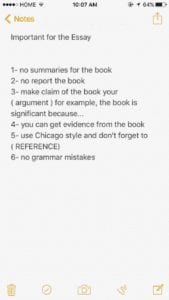Childhood and social institution
Instructions for writing "critical reviews."
A ‘critical review’ is not a book report. Reports summarize contents, critical reviews analyze them. To summarize is to repeat in a concise way; to analyze is to explain what a text means or why it is constructed in such a way.
Some students ask, ‘what am I looking for?’
Critical reviewers ‘look’ first to grasp the central argument of the book – its thesis and how it is developed and demonstrated.
Then they ask themselves these types of questions: Is this argument persuasive (why/why not)? Is it important (why/why not)? What assumptions drive this study? What are the implications of this study? Who is or should be its audience? What might be its limitations?
Critical reviews come in all shapes and sizes, but they all make a claim about the work. They do not simply repeat what the book says. Typically, strong reviews do some combination of the following.
(1) Sometimes critical reviews explain how arguments function by exposing their key terms or assumptions or ideas. When this happens, the reader of the review leaves with an enhanced or deeper understanding of the arguments within the work, rather than simply a re-statement of them.
(2) Sometimes critical reviews examine the consequences of holding an argument to be true by showing what is implied or at stake in the argument. This allows one to better understand the political or policy significance of the claims made in an essay. When this happens, the reader of the review gains a greater sense of the work’s significance.






